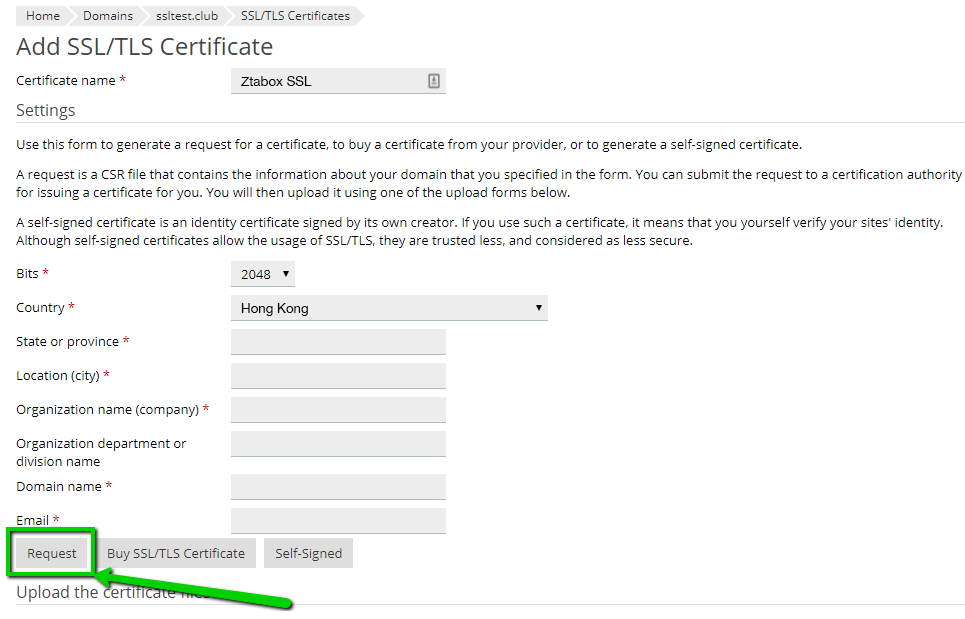CSR stands for certificate signing request. This request is used to send all necessary information such as domain name, location of the applicant or organization, public key to the Certificate Authority.
To generate CSR in your Plesk Panel, the following steps should be done:
- Login to the Plesk control panel.
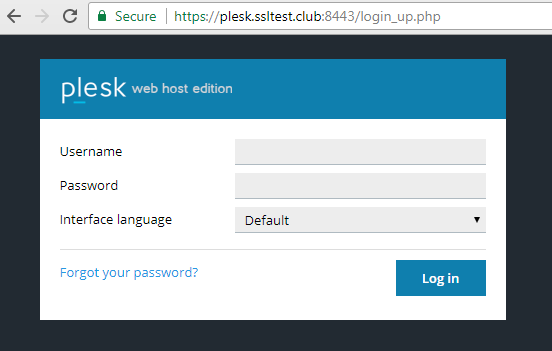
- Depending on the Plesk account type, you can see two web interfaces:
- 'Service Provider view' is the default for Server Administrator and Reseller accounts;
- 'Power User view' is the default for Customer account.
- Further instructions will be the same for both views. Click 'Add SSL/TLS Certificate'
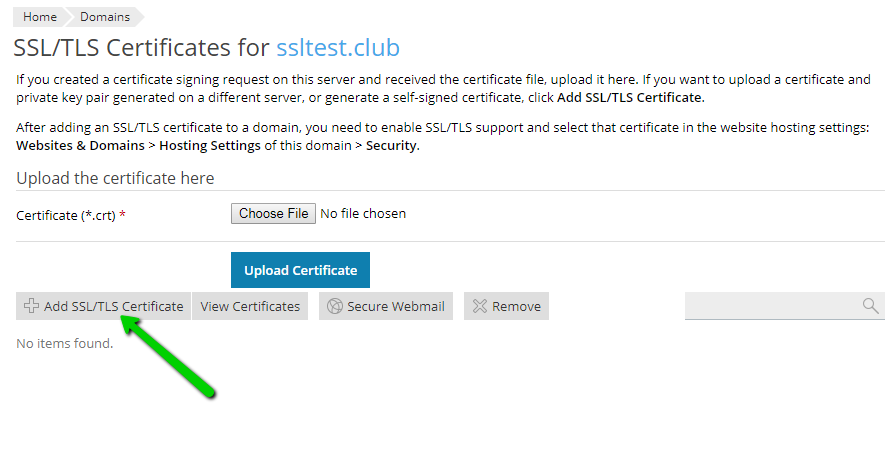
- Fill out all the necessary fields on this page and click 'Request':
- 'Certificate Name' - it can be any friendly name to distinguish a particular SSL certificate in Plesk Panel.
- 'Bits' - is a length of public key, 2048-bit is a minimum security standard nowadays.
- 'Country' - choose your country from the list, it will be shown in the CSR as two-letters country code.
- 'State or province' - state, county or region where the company or applicant is located.
- 'Location (city)' - is a locality or city of the country.
- 'Organization name (company)' - is the officially registered name of the organization that applies for a certificate. If you do not have any, put NA here.
- 'Organization department or division name' - is the name of the department or division within your organization. This is an optional field.
- 'Domain name' - is a fully qualified domain name (FQDN) that should be secured. The subdomain can be entered as well. To generate a CSR for a Wildcard certificate, put the server hostname in this format: *.domain.com.
- 'Email' - put your email here.
- New SSL certificate container will appear in the list. Click on it to find a CSR code and a private key generated along with CSR. A private key is required for further SSL installation to one or multiple hosting servers.
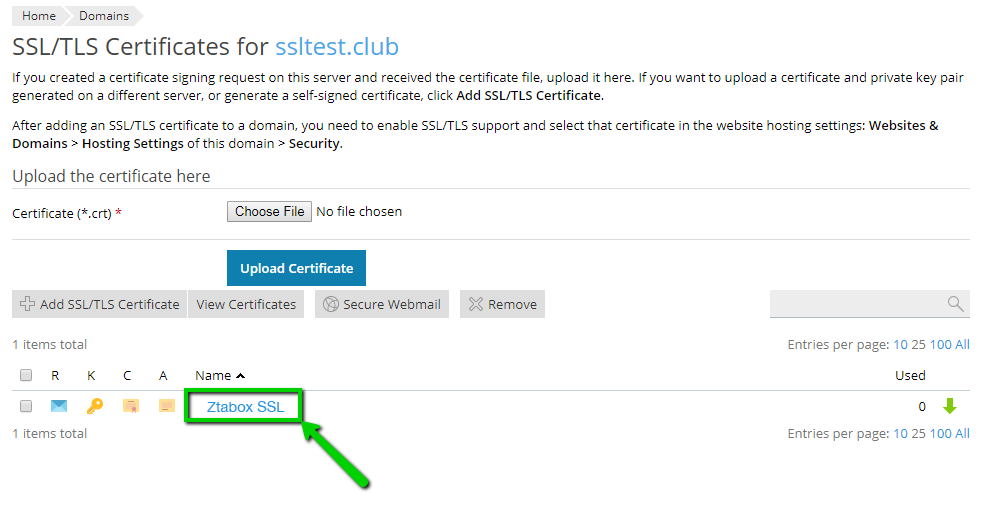
- Scroll down in order to find the CSR code. Copy all of it including header -----BEGIN CERTIFICATE REQUEST----- and footer -----END CERTIFICATE REQUEST-----.
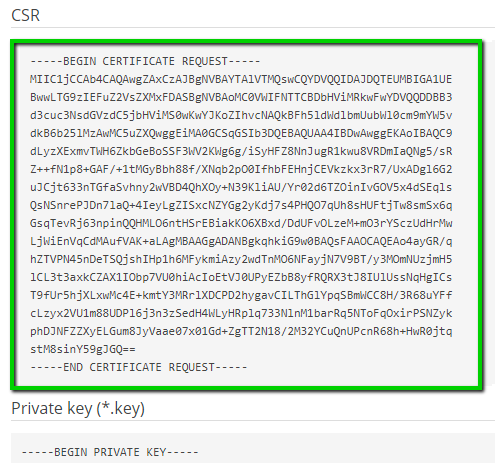
- This text should be saved and used for the certificate activation.
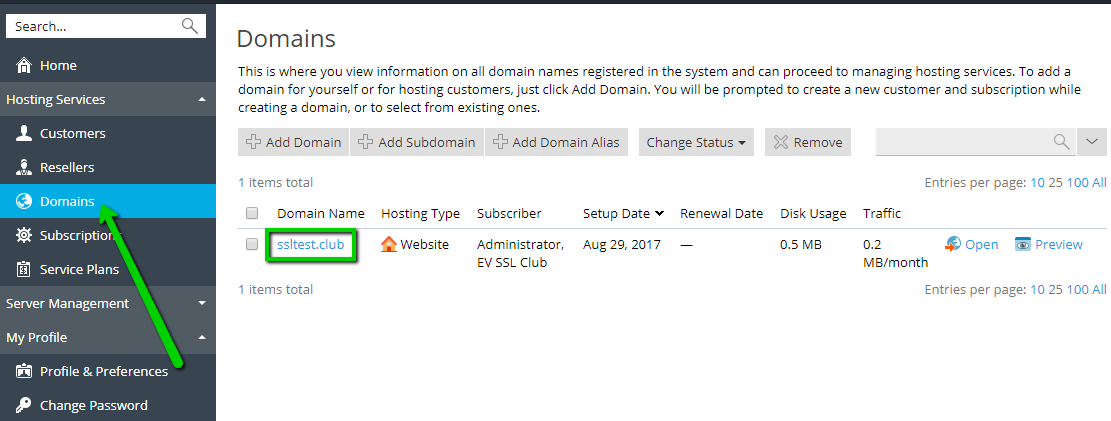
Click on 'SSL/TLS Certificates'
a) For 'Service Provider view', go to 'Domains' section and click on your domain name that you are going to secure.
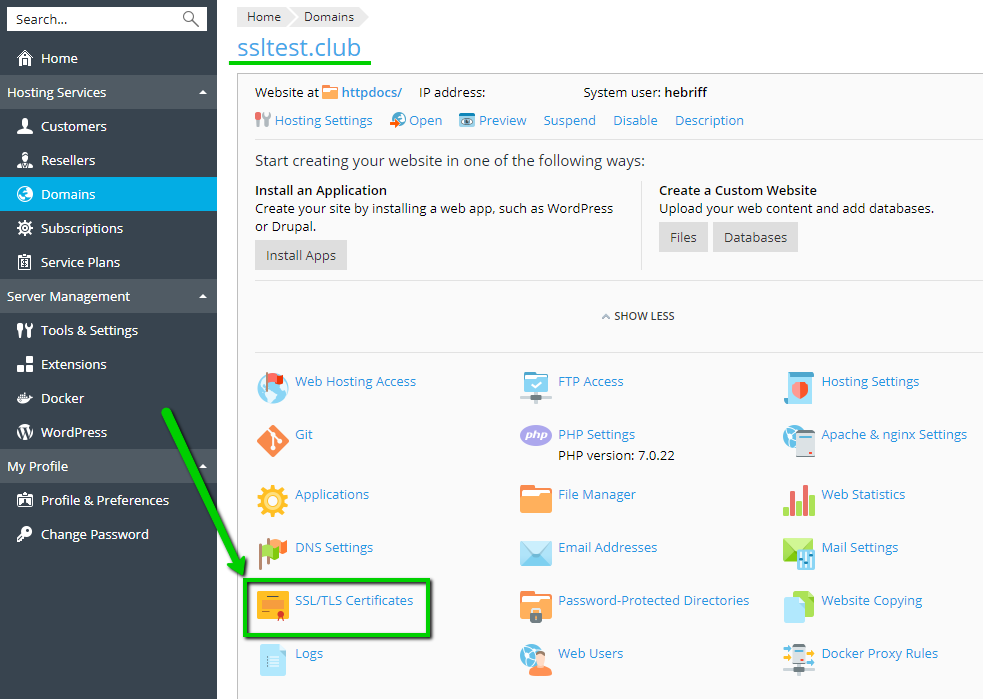
b) For 'Power User view', go to 'Websites & Domains' > Find the right domain name and click on 'SSL/TLS Certificates'
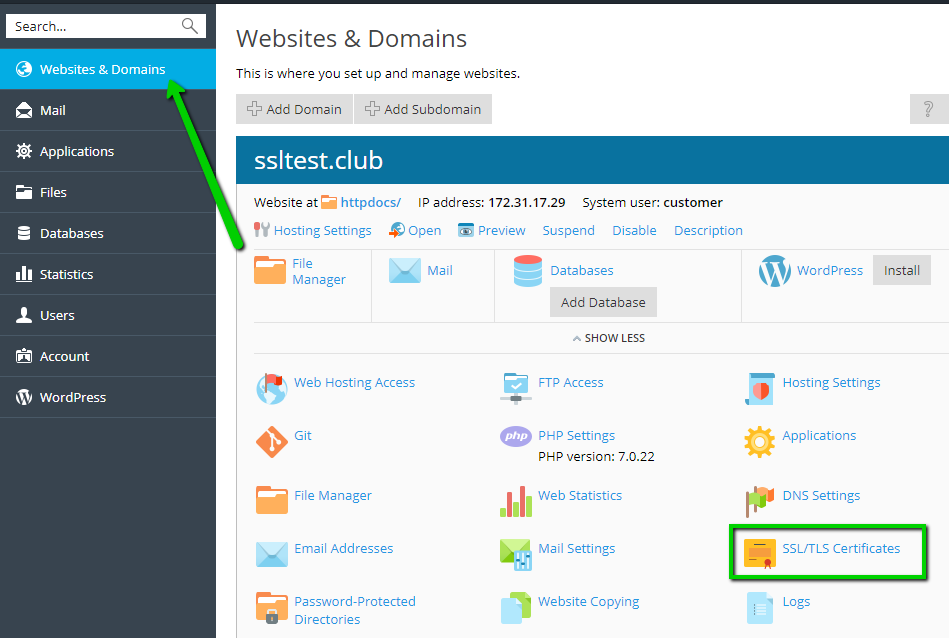
More information about CSR requirements can be found here.
